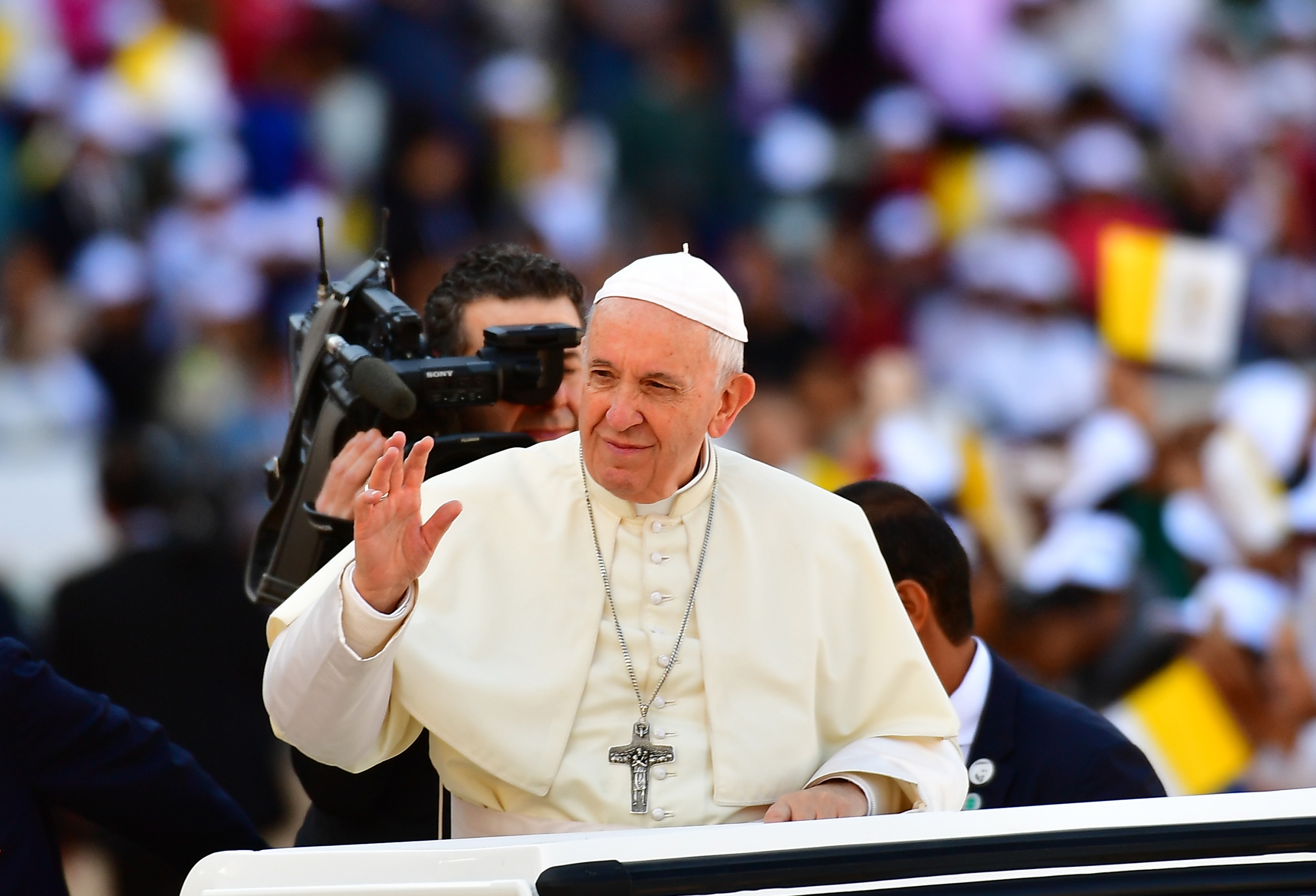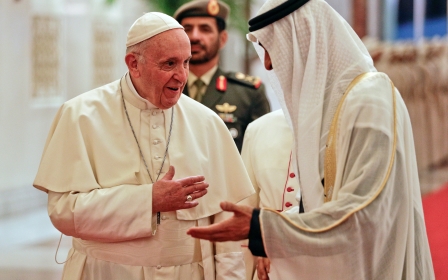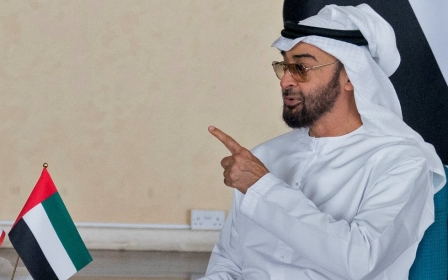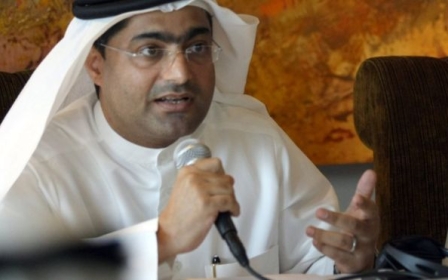Pope proves blockbuster draw at historic papal mass in Abu Dhabi

Tens of thousands of people flocked to a sports stadium in Abu Dhabi on Tuesday to attend the first mass held in the Arabian Peninsula by a pope.
Pope Francis, who is on a historic three-day trip to the United Arab Emirates, told the crowd of Catholics and Muslims to take inspiration from Saint Anthony the Abbot, the founder of monasticism in the desert.
The UAE hosts around a million expatriate Catholics, mostly from the Philippines and India.
"It is most certainly not easy for you to live far from home, missing the affection of your loved ones, and perhaps also feeling uncertainty about the future," Francis said.
"The Lord specialises in doing new things; he can even open paths in the desert."
Stay informed with MEE's newsletters
Sign up to get the latest alerts, insights and analysis, starting with Turkey Unpacked
In keeping with the pope’s blockbuster reception in Abu Dhabi thus far, Francis was driven to the Zayed Sports City stadium in a white, open-top jeep, to roars from the crowd.
Spectators waved the white and yellow Vatican flag, emblazoned with the crossed keys of St Peter.
The stadium itself could only fit 50,000 spectators, with up to 120,000 watching via a video link outside.
"For me as a Christian, this is one of the most important days of my life," said Thomas Tijo - a 44-year-old from Kerala, India - who lives in the UAE and travelled by bus in the early hours to get to the stadium.
"We are a long way from home and this is like a comforting blanket," he told the Reuters news agency, holding his three-year-old son, Marcus.
Wars, tolerance and rights abuses
On Monday, speaking at an interfaith conference, Francis called for an end to all wars in the Middle East.
Religious leaders had a "duty to reject every nuance of approval from the word war", he said at the conference.
"I am thinking in particular of Yemen, Syria, Iraq and Libya."
The United Arab Emirates is fighting in Yemen as part of a Saudi-led coalition that has been accused of war crimes.
The coalition’s bombing campaign has killed mainly civilians in a conflict that has taken tens of thousands of lives.
Meanwhile, a UAE and Saudi blockade of the country has driven millions to the brink of famine.
Outside the stadium, a small group of people waved a sign reading: "We the Catholics of Yemen love you."
"The pope has made pleas for ending the Yemen war, greater tolerance and more," said Lina Ghattas, a 48-year-old Egyptian who had travelled from Bahrain.
"I am not sure what will change: time will tell - hope, hope," she told Reuters.
'Pope Francis should use his visit to press UAE leaders to meet their human rights obligations at home and abroad'
- Sarah Leah Whitson, HRW
The pope is in the UAE as part of Abu Dhabi’s so-called Year of Tolerance.
Critics have noted, however, that the United Arab Emirates has a reputation of jailing any citizens who criticise the Emirati government.
Last month, rights groups slammed Abu Dhabi for upholding a 10-year prison sentence for activist Ahmed Mansoor.
Meanwhile, many migrant workers - predominantly from South Asia, many of whom form a large part of the country's Christian population - continue to be vulnerable to forced labour inside the Gulf Kingdom, despite foreign nationals account for nearly 90 percent of the UAE's population.
Despite making some reforms, the kafala (visa sponsorship) system continues to tie migrant workers to their employers - meaning those who leave their employer can face punishment for "absconding."
“Despite its assertions about tolerance, the UAE government has demonstrated no real interest in improving its human rights record,” Sarah Leah Whitson, Middle East and North Africa director at Human Rights Watch, said.
“But the UAE has shown how sensitive it is to its image on the global stage, and Pope Francis should use his visit to press UAE leaders to meet their human rights obligations at home and abroad.”
Middle East Eye delivers independent and unrivalled coverage and analysis of the Middle East, North Africa and beyond. To learn more about republishing this content and the associated fees, please fill out this form. More about MEE can be found here.




